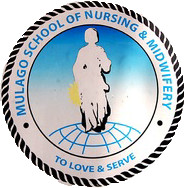WHO defines health as a state of complete physical, mental and social well-being, and not merely the absence of disease or infirmity. Making health for all a reality, and moving towards the progressive realization of human rights, requires that all individuals have access to quality health care, including comprehensive abortion care services – which includes information, management of abortion, and post-abortion care. Lack of access to safe, timely, affordable and respectful abortion care poses a risk to not only the physical, but also the mental and social, well-being of women and girls.
Abortion is safe when carried out using a method recommended by WHO, appropriate to the pregnancy duration and by someone with the necessary skills. However, when women with unwanted pregnancies face barriers to obtaining quality abortion, they often resort to unsafe abortion.
Ensuring that women and girls have access to abortion care that is evidence-based – which includes being safe, respectful and non-discriminatory – is fundamental to meeting the Sustainable Development Goals (SDGs) relating to good health and well-being (SDG3) and gender equality (SDG5).
Abortion is safe when carried out using a method recommended by WHO, appropriate to the pregnancy duration and by someone with the necessary skills. However, when women with unwanted pregnancies face barriers to obtaining quality abortion, they often resort to unsafe abortion.
Ensuring that women and girls have access to abortion care that is evidence-based – which includes being safe, respectful and non-discriminatory – is fundamental to meeting the Sustainable Development Goals (SDGs) relating to good health and well-being (SDG3) and gender equality (SDG5).
Abortion can be safely and effectively performed in a range of settings and by a variety of people, including different types of health workers, and in early pregnancy by the woman herself.
Person-centred, equitable and accessible abortion care supports efficient use of resources and enables women to attain care in line with their values, preferences and circumstances. This is supported by well functioning health systems; availability and accessibility of information; and respect for human rights within a supportive framework of law and policy.
Person-centred, equitable and accessible abortion care supports efficient use of resources and enables women to attain care in line with their values, preferences and circumstances. This is supported by well functioning health systems; availability and accessibility of information; and respect for human rights within a supportive framework of law and policy.

